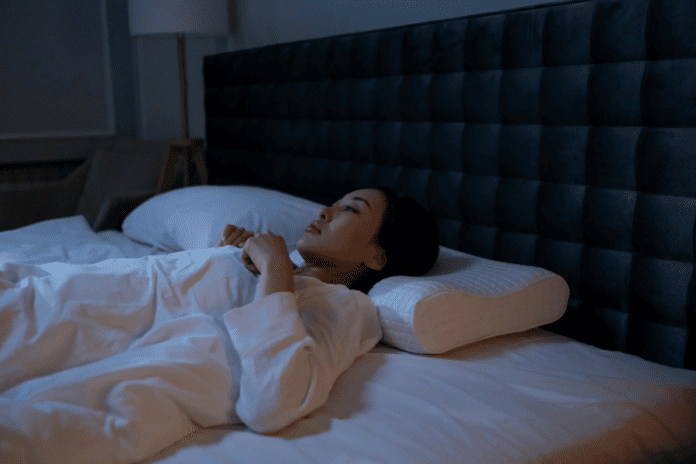Sleepless nights are no fun. It’s rather frustrating to lie awake at 3 a.m., stare at the ceiling, and wish you could just drift off. You’re not alone, however. About 25 to 30 million people in the U.S. struggle with insomnia, reports the AMA.
Sleeping pills have side effects and can be addictive in the long run. Melatonin supplements can help doze off. But you’ll feel groggy the next morning. However, there’s another option to consider: CBD or cannabidiol. According to CNET, CBD can help relax and promote sleep minus the grogginess.
Many people are starting to weave CBD into their nightly routines, hoping it might be the thing that helps them drift off without the tossing and turning. So, is CBD really a sleep savior or just another trend? Let’s find out here.
How Might CBD Help With Sleep?
Research into CBD is still in its early days, but there are some promising signs that it might help with insomnia. Here’s a rundown of what is known so far:
1. Reduces Anxiety
Anxiety is the biggest barrier to good sleep. If your insomnia is driven by racing thoughts or general anxiety, CBD could offer some relief.
A new research by CU Boulder suggests that CBD can quell anxiety. The research conducted on 300 people with anxiety found a greater reduction in perceived anxiety in cannabis users than in non-cannabis ones.
Research suggests that the calming effect of CBD on the central nervous system might reduce anxiety and promote relaxation.
2. Soothes Physical Discomfort
For anyone dealing with chronic pain, muscle soreness, or even general physical discomfort, sleep can feel impossible.
CBD has natural anti-inflammatory and pain-relieving properties, which could ease the pain and, in turn, make it easier to get comfortable and doze off.
A systematic review published in the journal Cureus examined several studies on CBD and pain relief. Thus, it concluded that CBD may help lower pain and inflammation in illnesses like multiple sclerosis, arthritis, fibromyalgia, and neuropathic pain.
3. Lowers Cortisol Levels
A study published by NIH reveals that cortisol levels of people with insomnia are high at night. When cortisol is high, it signals the body to stay alert. That is the last thing you want at bedtime.
CBD can help, however. According to The Yale Wave., CBD can help lower cortisol levels. This can help reduce stress and its associated symptoms, so you’re likely to drift off.
How to Incorporate CBD Into Your Bedtime Routine: 3 Ways
Thinking of giving CBD a try? You have plenty of options, then. Here, we’ll discuss a few options, so you can decide which might best fit into your nighttime ritual:
1. CBD Topical
For those who deal with physical tension, like tight shoulders or back pain, CBD topicals, like creams and balms, would be a good option. These are designed to be applied directly to your skin, usually to a specific area where you’re feeling discomfort.
So, if tight shoulders or an achy back are keeping you from fully relaxing at night, rubbing a CBD cream or balm into those areas can help release that tension and make you more comfortable.
Since CBD topical absorbs directly in the skin layers, muscles, and fats, Sagely Naturals advises finding a high-quality cream with non-toxic ingredients. Go for products that contain natural ingredients to ensure that what you’re putting on your skin is both safe and effective.
Keep in mind, though, that topicals won’t impact your mind as much—they are more for physical relief.
2. CBD Oil or Tincture
CBD oils are one of the most popular options. They come in small bottles with droppers, making them easy to use.
A few drops under your tongue, about 30-60 minutes before bed, might be all you need. The effects are usually felt within 15-30 minutes. That is what makes it a great option if you like to feel relaxed right as you’re getting ready to drift off.
It’s a fast and straightforward way to use CBD, and it’s easy to adjust the dosage if you need to.
When buying CBD oil, Forbes advises looking for options that contain non-GMO, organic, U.S.-grown hemp.
3. CBD Gummies
Not a fan of the earthy taste of CBD oil? Gummies might be your thing, then.
They are pre-dosed, which makes it easier to know how much you’re taking. The downside, however, is that they take longer to kick in since they have to go through your digestive system first.
The effects can last longer, though. That might help if you tend to wake up in the middle of the night.
CBD could be worth exploring if your sleeplessness stems from feeling wired, anxious, or restless at night. It’s gentle and natural and might just give your body the nudge it needs to settle into a restful state.
Start small—around 10-20 mg—and adjust based on how it makes you feel. It’s also wise to check in with a doctor, especially if you’re on other medications.








